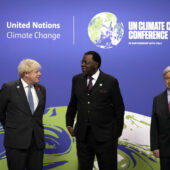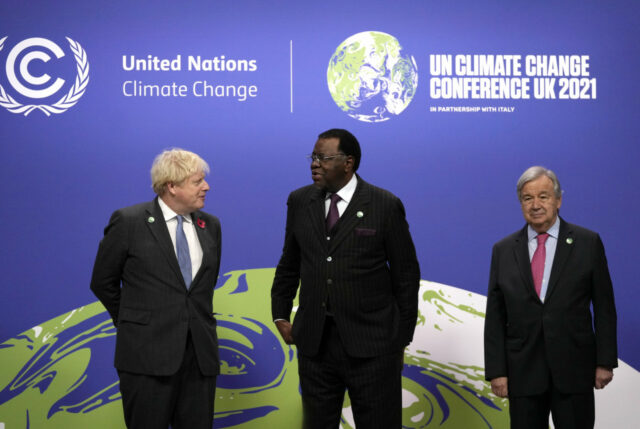To scale carbon trading the Voluntary Carbon Market will have to become more transparent, providing investors with clearer means for evaluating investment opportunities.

Two years ago easyJet claimed to be the first ‘carbon-neutral’ airline, compensating all its flight-related emissions with carbon credits purchased on the Voluntary Carbon Market (VCM) (8-10MtCO2e per year).
International advisory company Climate Focus assisted in the selection of projects under the Voluntary Carbon Standard (VCS) and Gold Standard, guaranteeing the airline company with a supply of high-quality emission reduction credits that, in the words of Climate Focus lead consultant Szymon Mikolajczyk, “are additional and provide measurable environmental and sustainable development benefits.”
Carbon projects assessed for easyJet were located in Africa, Asia and South America and included activities such as forestry, renewable energy, clean cooking and clean drinking water.
Is this greenwashing? A typical example of corporate policy claiming climate neutrality by compensating CO2 emissions with cheap carbon credits and having no ambitious goals to reduce one’s own emissions?
Not at all, according to easyJet’s CCO, Sophie Dekkers. At the recent Future Flying Forum she explained that easyJet is acutely aware that carbon offsetting isn’t the definitive solution to aviation emissions.
It can be done right now though and is better than doing nothing, Dekkers said. With this in mind, she noted, the airline is keenly looking at other solutions on its way to a net-zero target by 2050.
Significant growth in demand for carbon credits
While carbon credits can be a good way for companies to act on climate change now, they should never be a substitute for a company’s own emissions reductions according to Climate Focus.
“High-quality carbon credits can help companies and countries increase their ambition on the path to net-zero goals, but near-term quantified action to dramatically reduce emissions remains crucial,” says Mikolajczyk.
“As long as investments are allocated to activities with high environmental integrity and companies are transparent about the claims they make with regards to the role that carbon credits play in their broader climate strategies,” says Mikolajczyk, “the market can be a highly effective mechanism to stimulate climate-friendly investments at scale.”
Climate Focus is one of the consulting firms that works with private companies looking to engage with the voluntary carbon market. It maintains a Voluntary Carbon Market Dashboard, which provides up to date information in key voluntary carbon market metrics.
A report [pdf] on the first 6 months of 2021 indicates a significant growing demand for carbon credits from corporates. Also, the issuance of carbon credits more than doubled in the first half of 2021 compared to the same timeframe in 2020.
Nature-based solution projects are playing an important role, as well as renewable energy projects. The top three countries in 2021 so far are Indonesia, Cambodia and Peru.
More standardisation needed
Private impact investors already have a track record in the VCM, investing funds across different project types globally. However, to be able to scale effectively the VCM will have to become more transparent, providing investors with clearer possibilities for evaluating investment opportunities, says Mikolajczyk.
“The market so far has been operating in a fragmented fashion, making it complex for project developers to find a cost-effective route to market. Furthermore, clarity on how the VCM will interact with countries’ own reduction goals is needed, allowing investors to better manage the long-term prospects for the market,” he says.
In his opinion, as the market grows there will need to be a higher level of standardisation to reduce the transaction costs of mitigating greenhouse gas emissions through the VCM and providing project developers and investors with more confidence to engage in the market.
“Paramount is ensuring that the environmental integrity of the VCM is upheld. This will have to come paired with a continued refinement of minimum quality provisions to ensure that quality projects benefit from carbon finance, and that broader sustainable development considerations are not overlooked as the market scales.”
Demand for higher carbon credit price
According to a handful of NGOs organising a side-event on fair carbon offsetting in the final days of COP26 in Glasgow, it is exactly these sustainable development considerations that should be the centre of attention.
“Often carbon finance does not reach small-scale farmers and/or low-income households at the base of the pyramid that are actually responsible for the emission reduction,” the organisations say in their statement.
They argue for a wide acceptance of the relatively new Fairtrade Climate Standard developed by Fairtrade International and Gold Standard in cooperation with the Dutch Fair Climate Fund.
Starting point of the new standard is that a fair price has to be paid for carbon credits: at the moment carbon prices continue to be far lower than they need to be to meet the goals of the Paris Agreement.
At the same time guarantees are needed to ensure that the money really reaches the people that contribute least to climate change and face severe impact on their lives.






